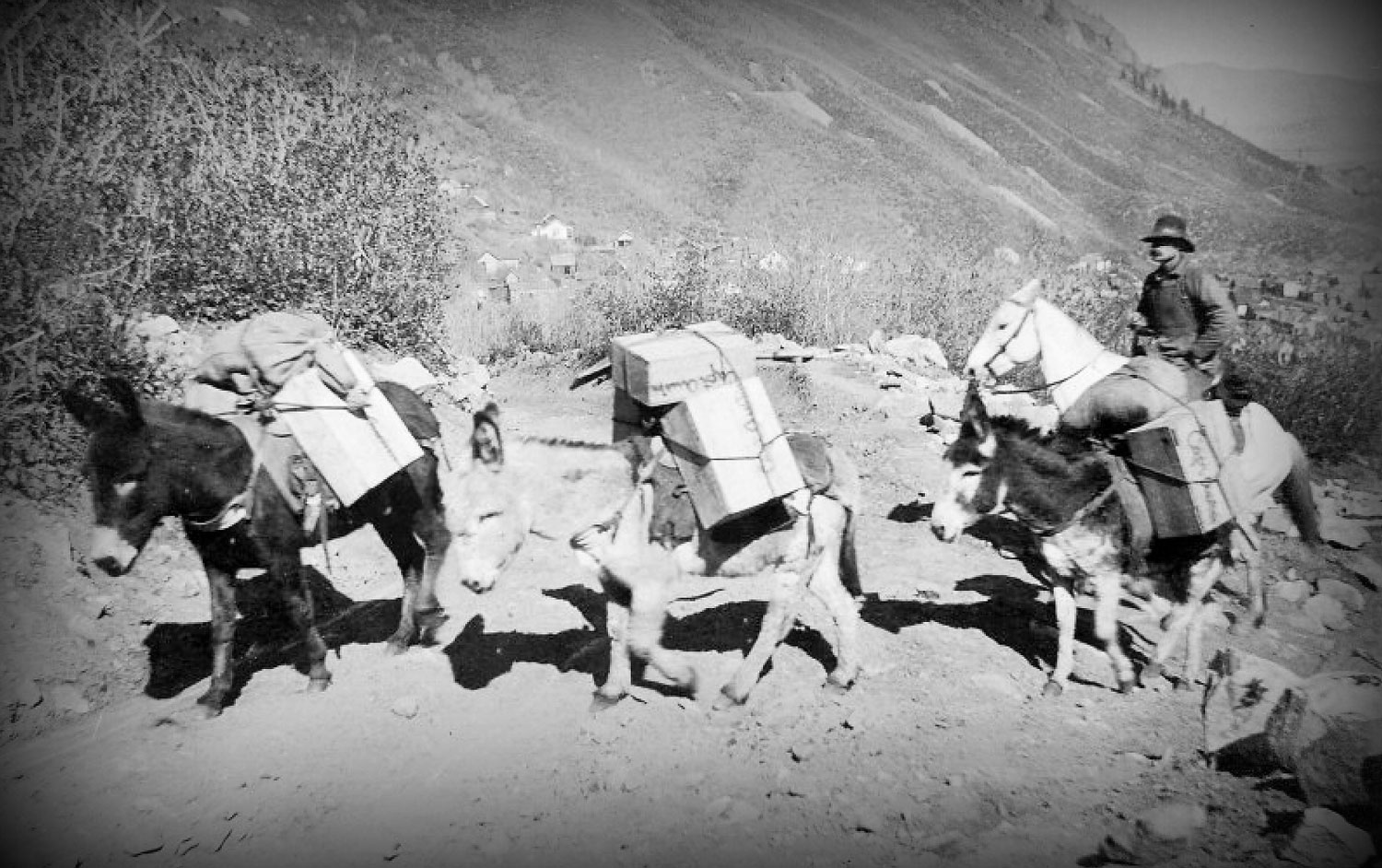Beasts of Burden
Packing in or packing out, there was nothing half-assed about it
Before railroads, anything needing transport into, out of, or between communities on the Western Slope of the Continental Divide arrived on the backs of donkeys or mules (a hybrid of horse and donkey). To supply burgeoning mining camps and deliver ore to distant processing mills, pack trains traversed rugged trails over treacherous mountain passes.
Comprising numerous animals carrying carefully balanced loads, these pack trains delivered goods from the nearest trading points at Leadville and Buena Vista across Independence Pass to Aspen. From Aspen, they freighted provisions to camps and farms in the Roaring Fork Valley and beyond. Leaving the area’s mines, animals laden with ore carried their loads to smelters on the other side of the Divide.
The transport system, an essential cog in the mining camp machine, was as critical to mining operations as it was to everyday life. Occasionally, grocery and supply merchants operated their own pack trains, selling their goods “at figures to compare with the low freights.” “Messrs. Kinney & Co., the leading grocery and provisions men, are receiving goods by the carloads, and as fast as the stock can be hauled between Buena Vista and here it is disposed of,” noted an 1881 Aspen Times article. “They are doing a rushing business. A large pack train is continually on the come and go.”
While ranchers and hunters provided meat and citizens cultivated anything that could thrive in the high mountain climate, all dry goods and other provisions arrived by pack train. From staples to “fancy groceries,” things like flour, sugar, coffee, salt, liquors and cigars were packed in crates strapped to the animals’ backs.
Edible Traditions is produced by the Aspen Historical Society. For access to the full online archives, including more than 10,000 historic images, visit AspenHistory.org or call 970.925.3721.





